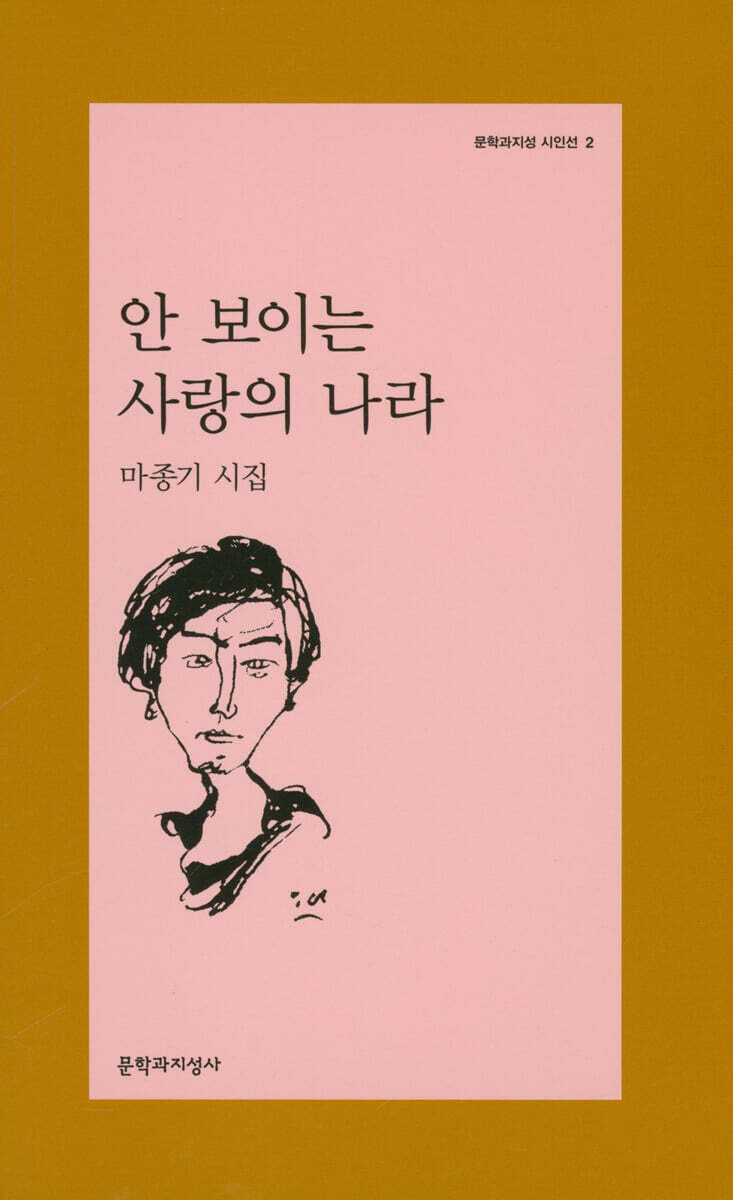[ENGLISH] To Make a Light, It was Dark
by Sun Yung Shin , on September 13, 2022
- English(English)
The poetry book Invisible Land of Love by Chonggi Mah, was originallypublished in Korean in 1980, and the 2022 edition is now translated intoEnglish by Youngshil Cho. These graceful, often minimalistic poems are occupiedwith desire, memory, loss, and impermanence. The collection is suffused by theinterpenetrating duality of life and death, where the boundaries between thoseon either side of the veil reach across in intimate gestures. Water is afrequent motif, signifying the fluidity of life shading into death and deathreturning to the living. Light—which gives visibility to porous forms in thedaytime world—is not static but ever cycling, decaying.
Mah’s narratives use repetition to layerimages, transparency building toward but never reaching opacity, bending backon each other to repeat things that melt from object to the subject, as in thepoem “Love Song 9” which shares a fleeting moment:
A dead friend quietly comes
to whisper in my ear
under water on a spring day
Dying and living is like water sound.
Is that so, the spring day already darkening.
In the first instance, the spring day isan object and in the second instance, the spring day is a subject, darkening,fading, dying.
It’s no surprise that Mah, as aphysician, would write poems that explore the juxtaposition of death and life.He sometimes renders scenes with a touch of the Gothic, which, as a literarymovement, often contrasted innocence with decay:
during my medical school course, toward dark
daybreak after a vigil in the anatomy classroom
lined with corpses, I confess my innocent love.
Amid whispers of dim lightbulbs and corpses.
Words such as “vigil” and the solitudeof the narrator lend a monastic feel to the scene and action. Mah’s lonenarrators, surrounded by shadows and reminiscences, often seem to haunt thesettings into which they are placed.
Space is important here. It is givenshape by architectural features, which make emptiness bounded and visible.Mah’s poetics of space often honors this duality, of the tension betweenoutside and inside. Here is a world in which natural forces have agency, havespirits, as in the poem “Illustration 5”: When I pass by the public cemetery / italways smells of mint. / A square window redolent of mint, / the dawn outsidethe window / needs to practice to see the inside. Images are additive; there is the window and then the dawn outsidethe window, and in this way even transparency is layered. Each poem is like apalimpsest in this way. In Mah’s poems, speakers exclaim how human makersenclose space in order to create emptiness, as in the poem “Drawing” whichbegins:
I’ve taken up drawing.
Decided to be simple like winter.
The tree outside the window’s fallen asleep
and images of snow pile up inside a wanderer’s bones.
I’ve started drawing an urn.
Decided to live like an empty field.
There is a contrast between thecontinuous action of the speaker (who has taken up drawing) and the stillnessof the sleeping tree, the images of snow, the motionless field. Mah’s poemsmake the human equal or less important than their environment, emphasizing thetransience of human life while the elements persist, whether we are alive orjust “bones.”
Narrators here exist in surrealpossibilities. They are alone, invisible in the dark, but still, perhapsinstinctively, unavoidably, make movements toward communication: At night / I takeout my rumpled shadow / and try waving it / like a forgotten banner. In this collection, shadows are constant companions, reminders thatthat which is visible may still be evanescent, mercurial, expressive, and caneven impinge on the solid body. Scale becomes elastic: Lately I experienceto the point of discomfort / a pocket rather great in size / the music of myown shadow.
With thisEnglish translation of Invisible Land of Love,Chonggi Mah and Youngshil Cho have produced a delicate, sometimes wounded,text. English-language readers, regardless of their relationship totwentieth-century Korean history and its undeniable traumas and separations,will find their own existential conditions reflected in the universality ofthese poems, which elegantly consider both the terrible and the tender.
Sun Yung Shin
-
Source : KOREAN LITERATURE NOW, https://www.kln.or.kr/lines/reviewsView.do?bbsIdx=1783
Provider for
Keyword : Invisible Land of Love,Mah Chonggi
- Invisible Land of Love
- Author : Chonggi Mah
- Co-Author :
- Translator : Youngshil Cho
- Publisher : Homa Sekey Books
- Published Year : 2022
- Country : UNITED STATES
- Original Title : 안 보이는 사랑의 나라
- Original Language : Korean(한국어)
- ISBN : 9781622461035

- 안 보이는 사랑의 나라
- Author : Mah Chonggi
- Co-Author :
- Publisher : 文學과 知性社
- Published Year : 0
- Country : 국가 > SOUTH KOREA
- Original Language : Korean(한국어)
- ISBN : 9788932018720
Translated Books1
-
English(English) BookInvisible Land of Love


